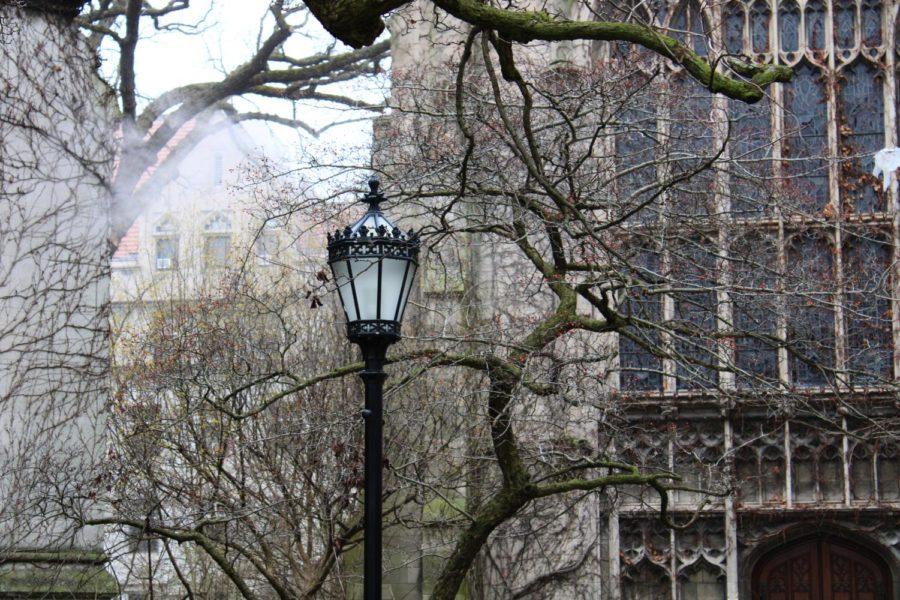In the unanimously passed Initiative Development and Executive Augmentation (IDEA) Act, College Council (CC) established the structure of its proposed new Undergraduate Student Government (USG) following its initiative to split the Graduate Council and CC in an upcoming referendum.
If sixty percent of the student body votes affirmatively on the referendum on the ballot for this election, then Student Government (SG) will be split into two separate entities. One will become the new USG and serve undergraduate students. The other will serve graduate students.
The new USG would be led by a slate consisting of the president, CC chair, and executive vice president. While students would elect two of their peers to serve as president and chair, the CC would appoint the executive vice president. The resolution would also expand the CC from 16 to 20 members and change the makeup of the cabinet to include four vice presidents appointed by the CC.
The spring 2021 SG election will proceed as normal, with candidates running in a three-person slate. If the referendum passes, the elected vice president for administration would become CC chair, and the vice president for student affairs would become the executive vice president for external affairs, a proposed temporary role for 2021–22.
“The transition is different because it is the first time since SG’s creation that the entire system of UChicago student governance is being closely examined and rebuilt from scratch,” CC explained the significance of the transition on their website.
In a comment to The Maroon, Alex Levi, the current Vice President for Administration, raised concerns over the lack of input from the student body when the resolution was being drafted. “Less than 20% of SG as a whole seriously took the time to offer feedback during an internal SG-wide deliberation period that lasted less than a week, and they have not sought meaningful student body deliberation at any point in the process,” he wrote.
Levi also pointed out that the Transition Committee, which leads the transition effort and recommended the new USG constitution, is “inherently unrepresentative of SG” because it composed entirely of CC members.
Levi believed that the IDEA Act should not take effect unless The Transition Committee allows three to four weeks for students to discuss the proposed structure. “I strongly encourage members of the student body to get involved in this process. Not only will broad participation strengthen the new USG constitutional mandate, but it will also build a strong community of student governance on our campus.”
On a social media post outlining the proposed structure, CC emphasized that these ideas are not permanent. “This is a year-long process, and we are committed to welcoming and incorporating constructive student feedback,” the post reads.
The Transition Committee will host an open, pre-election webinar on Monday to discuss the referendum. After the election, the Committee said that it would hold town halls and adjust their recommendations with student feedback.
Currently, the Executive Committee, standing and external committees, and CC, which together comprise the designated undergraduate legislature according to the SG constitution, are separate bodies within SG. However, the role of each branch is not specified, leading to inefficient communication. “There’s very little incentive for communication between the legislative, the executive, and the committees,” said CC representative Allen Abbott, who sponsored the resolution.
As a result, the bodies often find themselves engaging in overlapping or redundant work. Abbott recalled that on one occasion, two SG members approached the same administrator for the same thing. “They don’t seem to know that they themselves are trying to get the same project done,” he said. Meanwhile, there is no formal requirement for CC to consult committee members when passing resolutions on specific issues pertaining to those committees.
With the change in SG’s structure, the executive slate would lead internal coordination among different bodies. The president would chair a cabinet composed of four vice presidents each specializing in an area of focus: communications, advocacy, student and campus services, and student organizations. The president would also oversee the respective committees for those issue areas.
The CC chair would oversee the CC decision-making process. Under the new USG, CC would not initiate new projects on its own but would instead ratify USG projects and statements. Committees would design all projects and legislations relevant to their area of specialization, with CC members sitting on these committees to provide input for the working groups.
The third member of the executive slate, the executive vice president, would be appointed to handle internal administrative policies, including managing the staff and providing resources for carrying out SG operations. Abbott believed that the creation of this internal-facing role, along with the expansion of the SG to include more members, would help reduce the administrative burden on the elected slate and allow them to more effectively pursue their platforms.
“What we see right now is that there’s a huge disconnect between what slates run on in the election and what they actually do when they are in office, and it’s because they are overburdened with administrative work,” he said. “The biggest change in the new executive slate is that they become truly key representatives of the Student Government, and that’s how we see them: as the people who can best represent students to the highest levels of administration.”
Candidates running for executive slate in the spring 2021 SG election still run under the roles of president, vice president for administration, or vice president for student affairs. If the referendum passes, executive slate candidates would run in pairs starting spring 2022.









